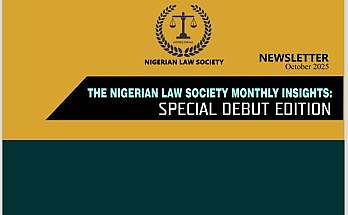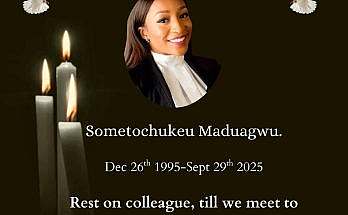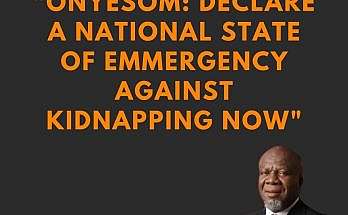1. Workers are not in the Labour Party. Why? Because even at foundation, the trade union bureaucracy did not encourage workers membership. They did not run any active and convincing membership mobilisation drive among workers.
2. The Trade Unions have no control over the current Labour Party, even though the party had been founded by the trade unions. Why? Because, the trade unions were not interested in organised, collective, and self conscious Workers Political Participation.
Opening up the party to direct workers membership and participation will raise issues about internal democracy, and might jeopardise the bureaucracy’s hold on the workers and control over both the trade unions and the Labour Party.
3. The project of reclaiming the Labour Party by the Trade Unions have been passive. Why? Because
The Trade Unions were compelled by circumstances, and pressure from the organised Left and intensifying mass resistance activities to mount a project of reclaiming the Labour Party; through legal, and eventually a more overtly pronounced political process.
4. Reclaiming the Labour Party is not exactly the same thing as Recovering the Labour Party by Workers. Why? Because even though the project of reclaiming the Labour Party by the Trade Unions converged with the project of a significant section of the Left towards Workers Recovery of the Labour Party, the intended end result could be very different indeed. The Reclaim project signifies the desire of the Trade Unions bureaucracy to take back control of the Labour Party; while the Workers Recovery Project signifies a desire and intent to actively organise and mobilise mass workers membership and ownership of the Labour Party.
Proof of the divergent trajectories of these seeming convergence of positions is seen from the more or less contentment of the Labour bureaucracy with being consulted and taken into confidence by the Labour Party leadership, and the very passive and lackadaisical approach to mounting a robust and vigorous campaign of getting workers into the Labour Party.
5. Even now, even with the Resolve of the Trade Unions to reclaim the Labour Party, Workers are not joining the Labour Party as expected. Why? Because ordinary workers, the overwhelming majority of workers do not trust their trade unions leaders in general, and in particular over political matters.
They know that their leaders are members and supporters of APC, PDP and APGA. They also know their leaders very well, and do not believe their leaders are very serious, and or working in their interest on this matter. Proof? They see their past and current leaders hobnobbing with politicians of these parties, with some even seeking and getting the tickets of these people to contest the 2023 general elections.
At the same time they do not see their leaders mounting any vigorous, overt and active membership drive campaign. And They still do not have direct access to the Labour Party Manifesto, among other things.
6. The current Labour Party has no control over the candidates of the Labour Party. Why? Election periods have always been a political bazaar, and a moment of trading for the Labour Party.
The 2022 primary season will go down in history as the biggest such bazaar yet, and as well as the most profitable trading season. And although the present Labour Party leadership and the current leadership of the Trade Unions appear to have a coincidence of interest in inviting politicians from the main parties – APC, PDP and APGA to join the Labour Party, pick the party’s tickets at various levels, and fly the party’s flag in the upcoming elections; neither the party nor the trade unions seem to have any control over the party’s candidates who have crossed over from these other major parties. Proof?
The party does not have a committee of party leaders, including representatives of the Trade Unions’ political commissions, involved the search for and selection of running mates for their Presidential and Governorship candidates; nor does it appear that the party and trade unions leaderships are directly involved in the drawing up of the electoral programs, or management of the election campaigns of the various candidates; nor are they involved the conversations around merger and electoral alliances between the Labour Party and the NNPP. While on the NNPP side it seems Kwakwanso presidential campaign team and the NNPP party leadership are involved in the negotiations, it seems it is only the Peter Obi Presidential campaign team that is involved in the negotiations on the Labour Party side.
7. The current Labour Party has become a Broad Tent Refugee Camp of Political Migrants – the rejects of the major parties of APC, PDP and APGA. Why?
Because virtually all of the candidates that have emerged on the Labour Party during this primaries bazaar period, are recent defectors and decampees from the APC, PDP and APGA.
They defected only after losing their party primaries, or just before their party primaries when it has become clear to them they could not get their party tickets.
Furthermore, as soon as they announce their defection to the Labour Party, they are promptly admitted into the party on the eve of Labour Party primaries, and are immediately confirmed winners of the respective primaries in which they are quite often the only candidates standing.
8. This Political Migrants Refugee Camp is a mismatch of refugees from different and opposing political parties, and political backgrounds, and with different often opposing political views and political antecedents.
The resultant effect of these is that although the Labour Party has candidates, there is no cohesion among the candidates, and there is no sense of a collective candidacy of a common platform, of the same party.
9. Neither the Labour Party nor the Trade Unions have any influence on the supporters of the different candidates of the party. Why?
Because each candidate is in the party on his or her own volition, the candidate, brings along his or her support base, who are loyal to their own political leaders, and not to the party, and who are not inclined to work with the supporters of other candidates, since their political leaders are themselves not working together. The resultant situation is one of ‘Every Candidate for His or Herself, And Labour Party, for No one’!
10. Peter Obi’s presidential candidacy of the Labour Party, and his headlining role for the Labour Party general elections campaign is fraught with a number of potential disasters for the working class and toiling masses. Why?
First Peter Obi is at best a Social Liberal, propagator of a mismatch of neoliberal policies and programs, with a human face. But even more importantly, Peter Obi’s entrance into and candidacy of the Labour Party opened the floodgates for a deluge of right-wing influx into the party, consolidating the rightward shift of the Labour Party leadership and the Trade Unions bureaucracy.
11. The emergent upsurge of uncritical support in some quarters , including among the left, for Peter Obi’s candidacy of the Labour Party, and for the Labour Party on account of the ‘opportunity’ presented by Peter Obi’s emergence, is dangerous for the self activity of the class, and the project of self emancipation of the working people. Why? Because it panders to, rather than confront the popular illusions of the ordinary people, while helping to foster this popular illusions, and consolidate the populist transformation of Peter Obi and his candidacy. The already emerging result is that this is already birthing and consolidating a false messianic hope, and a cult of the personality around Peter Obi, as evident in the OBI-DIENT movement. This is dangerous not only for the left, but also for the mass movement and the working class and toiling masses. The danger of populism is all too clear throughout history. Every time the left has aligned with populists, the first victims of their rule is the left itself. And every time populists resting on a personality cult, and endowed with a messianic ability to transform society have been thrust into power, the result has always been a merciless totalitarian dictatorship. There is an even more present and immediate potential danger arising from this conscious and unconscious attempt to foster this populism; this is the danger associated with the variegated (conscious and semiconscious) attempts by some in this disparage coalition to claim, through their narratives the Peter Obi candidacy as the platform for promoting divisive primordial identities, and realizing ethnic (as in a specific ethnic group), religious (as in a specific religious faith), and ethnoreligious (as in a specific ethnic and religious identifty) agendas within the Nigeria polity. The proof of this? It is already happening in the unguarded utterances and special narratives of some who identify as South East and Igbo, as well as those who identify as. Christian, and Southern Nigeria.
12. The project of replacing the APC, PDP and APGA by a Labour Party that is essentially a party of political migrants seeking temporary refuge in the Labour Party, is just what it is, a huge hoax, a deliberate marketing of falsehood. Why? Because, replacing these parties, through the agency of a party whose leaders and candidates are recent decampees from the same parties, and whose reasons for defecting from their respective parties is solely because of their personal ambitions amounts to selling the same product to the people under a new label, and convincing the people that it is a new product, simply because of the change in label. Their defections have uniformly been because they were not going to be able to realise their ambitions in their respective political parties, and certainly not because of any ideological and or sharp programmatic disagreements. It amounts to wittingly or unwittingly participating in a subterfuge aimed at deceiving the popular masses in order to sell our product.
13. There is a difference between opportunity and opportunism. Why? And how? It is true that the current situation represents a period of heightened interest in politics among the people. And in this sense it is most definitely an opportunity. However, the opportunity lies in our ability to be able to take advantage of the current situation to make our case, to clearly critique the unfolding process, including all of its accompanying narratives, and to confront and challenge the illusions of the people, however popular these illusions might be. Our task is to provide clarity in the midst of this thickening fog, and to present and argue for an alternative politics and programs – working class politics, and make the case for Socialism and the Workers Alternative. Our duty is to patiently explain to the masses why there is no real alternative available on the ballot, why regardless of who wins, the crisis of governance, and the political and economic crises and resultant hardships and insecurity, will very likely deepen; and thus urge the working class and toiling masses to prepare for the coming resistance struggles. Doing otherwise, and fostering illusions in Peter Obi and the current Labour Party as having the capacity to resolve these fundamental existential crises, when in actual fact it is most likely going to be deepened, amounts to Opportunism, and not taking advantage of opportunity. Taking advantage of opportunity means using the current situation as a platform for advancing our own cause and program.
14. Finally, What Is To Be Done? If we truly desire left electoral political participation, then our current and immediate task, taking advantage of the heightened interest in politics among the masses, is to engage the mood of the masses with our own clear alternative program (the socialist program encapsulated in the TPAP manifesto), under our own distinct banner (TPAP-M), robustly argue our case, and put socialism on the front burner, as The Alternative Not On The Ballot (#AlternativeNotOnTheBallot); and utilise the period to build among the masses, to establish strong roots within the class, to considerably widen and broaden our membership, and support base, and to exist as a beacon of resistance for the people, and to emerge from this process as a Mass Working Peoples Political Movement, (that is a stronger and bigger TPAP-M), and with the autonomous capacity to act as a significant organised social force of the class.
If the left is determined to participate in elections and field left candidates from among her membership, and on her platform, then the time to organize and mobilize to build our movement is now. This way we emerge as a trusted and viable beacon to organize the resistance of our people, and they will turn to us, because we would have been consistently warning them and enlightening them about the coming crises. This will also enable us build and consolidate on acquiring autonomous capacity to act, and prepare us as a movement, at the head of the Labour movement to take on the next general elections on our own terms.
© Jaye Gaskia is a Member of the TPAP-M Secretariat




